What do an 8-hour shift and a maze have in common? Well, they can both leave you feeling hopeless.
All you need to do is take a few wrong turns, and you’ve lost valuable time and made zero progress.
Soon after, you start feeling hot, nauseous, and on top of all that — self-doubt takes over.
But there’s a path out of this mess.
Thanks to science, we’ll guide you through a few practical ways to become your most productive self while working 8 hours a day.
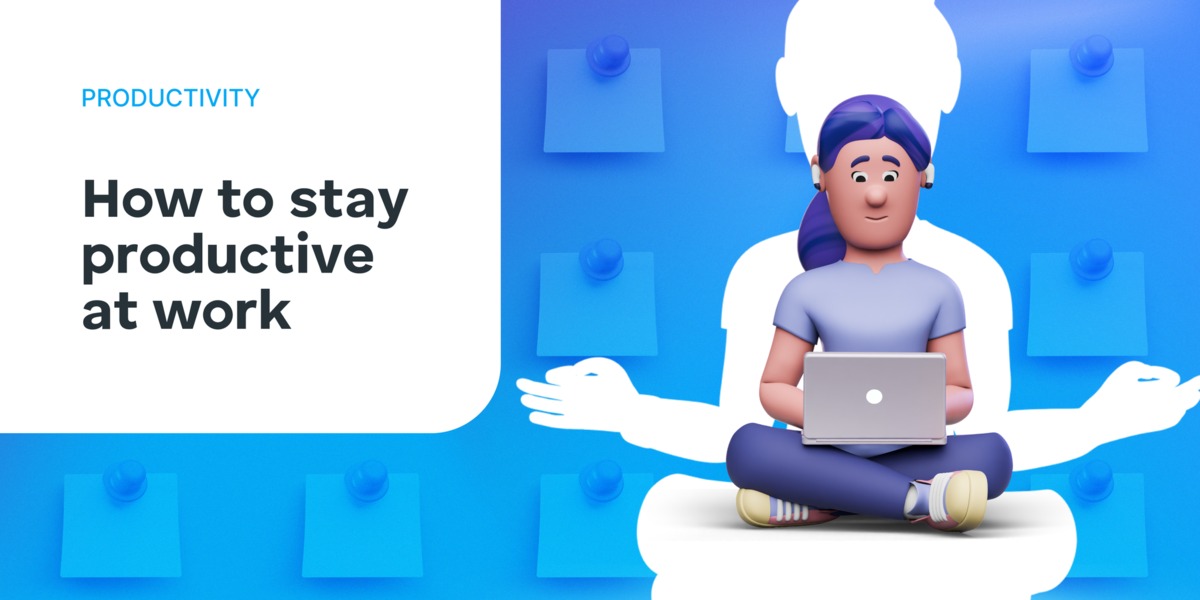
Shake the 8-hour workday blues by seeking help
In the office jungle, your survival instincts kick in when juggling intense work and limited time. You notice the clock ticking and pressure builds, capping your productivity during your 8-hour shift. Finally, you realize that stress got the best of you.
But what does the science say?
Well, research on negative workplace emotions lists 5 emotion categories:
- Individual (e.g. anger),
- Cognitive (e.g. disorientation),
- Attachment (e.g. jealousy),
- Self-image (e.g. shame), and
- Other-image emotions (e.g. pity).
Sound familiar? I, too, am no stranger to nail-biting and hair-pulling when trying to maintain peak productivity 8 hours a day.
Indeed, I developed these embarrassing habits while working as a desktop publishing assistant. Here, formatting a 30-page document within a single hour was commonplace.
Eventually, I got lost in an exhausting limbo of work and distress, just trying to survive the 8-hour grind.
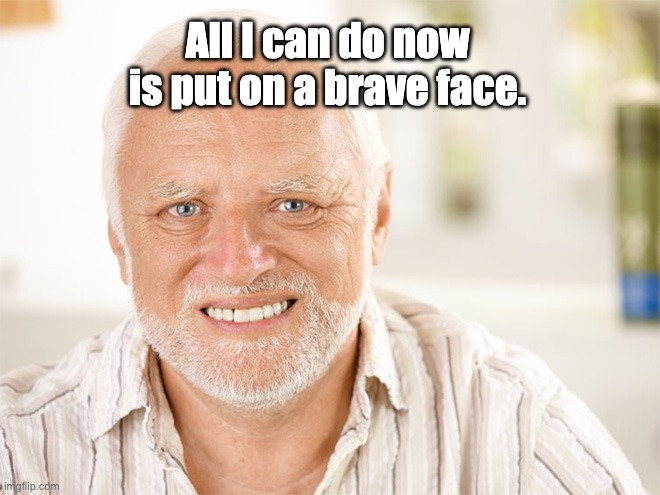
In time, I fell victim to the master torturer — insomnia.
So, I plucked up the courage to visit a psychiatrist. He prescribed some pills and set the next appointment.
Okay, but how about some guidance, doctor?
Turns out science has the solution. Studies on insomnia treatment show that people trained to change stressful thoughts sleep better than those dependent on medication.
So, if you ever experience anything similar, your only way out is changing your perspective toward work. And what better way to do it than in good company?
For instance, confide in a compassionate co-worker. Apart from that, finding a stress-free work strategy also helps relieve productivity guilt.
In my case, I felt an immediate release upon discovering effective time management techniques. My productivity soared as the 8 hours flew by.
Most interestingly, I found comfort in the realization that needing help isn’t a sign of weakness but something we all deserve.
Help comes in different forms — sometimes it’s a work buddy, other times a practical tool.
What to do when fear cripples your productivity
Many office workers equate work-related stress to fear.
In fact, the sentiment is so far-reaching that a study on work-related anxiety discusses “workplace phobia.” Employees in this state experience heightened nervous system activity and have panic-like reactions when thinking about or going to work.
For people to dread working 8 hours a day, you’d think something life-threatening must have triggered the difficult emotion. Yet, the most common types of fear of failure at work include:
- Fear of being unsuccessful,
- Fear of disappointing others,
- Fear of what others think about you,
- Fear of success (the changes it would bring), and
- Fear of the unknown.
Trust me — I’ve experienced this vicious cycle first-hand. My productivity plummeted when I failed to meet company standards. In turn, I felt like a huge disappointment, and the cycle continued.
Consequently, caring too much endangered my work-life balance.
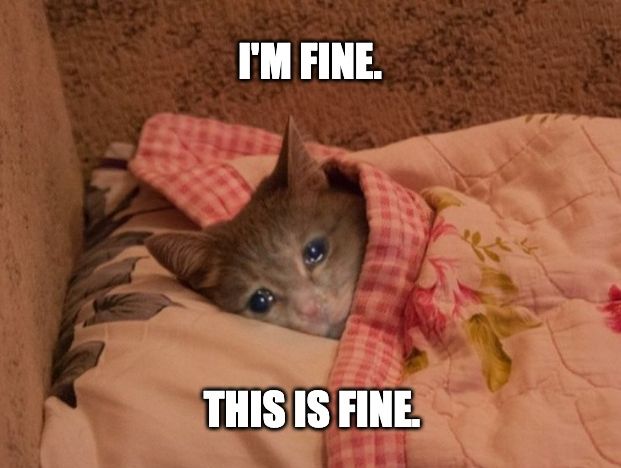
Had I known then what I know today, I’d have tried to set better boundaries. According to psychologists, setting boundaries is the best way to feel safe and healthy at work and home.
For example, develop healthy habits to achieve work-life harmony, like exercising or meditation. Still, how do you actually increase productivity during 8 hours at work?
Nowadays, we blindly accept tasks to demonstrate our value to the company. Yet, saying “no” at work is a healthy way to draw boundaries and protect yourself from becoming less productive.
You may fear that rejecting tasks makes you look lazy or inefficient. Instead, consider the consequences of saying “yes.”
For illustration, imagine you’re the managing director of a sales company overseeing multiple operations. Your superiors ask you and your staff to work overtime due to a slight profit dip. If you accept the instruction, you may harm your health and the business, so try offering other ways to fix this issue.
Recap: Set boundaries to transform your 8-hour workday and reclaim productivity. For instance, pursue new after-work passions and decline unreasonable assignments.
Practice self-care to beat burnout — the biggest productivity killer
Before becoming a productivity pro, I also hit this scary bump on the road. Working for 8 hours straight with no support or time management strategies almost took the life out of me.
Stuck between desperately wanting to contribute and failing to meet expectations, I felt my mental health crumble.
Enter career burnout — the consequence of enduring high stress and working yourself to the bone. So, you can’t ignore these struggles for 8 hours and expect to remain at a reasonable level of productivity.
As a result, you blow everything out of proportion. You’re worried about getting fired and losing the company millions. Finally, the frantic overthinking cripples you.
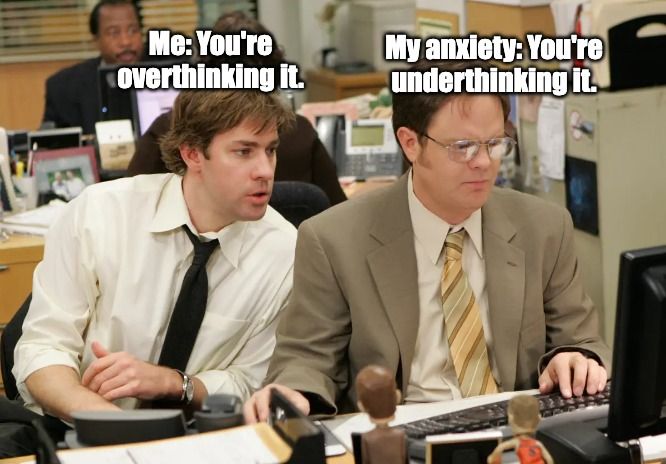
Now you’ve got your body working against you, too. According to leading researchers on occupational stress, burnout damages your bodily functions, too. In a nutshell, you’re risking:
- Physical exhaustion,
- Insomnia,
- Harmful eating habits, and
- Alarming levels of stress hormones (cortisol, adrenaline, and others).
To address this urgent concern, you’ll need the proper tools.
As a remedy, a paper on burnout recovery lists 7 effective ways to restore balance:
- Recognize optimal working conditions — recall a work situation where you felt most comfortable. Prioritize enough sleep, healthy diets, and physical activity.
- Regulate your emotions — practice writing down feelings, deep breathing, and remember that every problem is solvable.
- Focus on work recovery — take regular micro-breaks during work to unwind.
- Identify positive changes you can make — pinpoint things you can improve and initiate change. For instance, request extended deadlines.
- Reach out to co-workers — build a support system at work to increase resilience.
- Reestablish your values — find ways to avoid doing things you disagree with to protect your personal beliefs.
- Get professional advice — if nothing else helps, consider visiting a mental health professional.
In short, always put your well-being first and find reliable methods to boost productivity during an 8-hour workday.
How Clockify offered an easy fix for my productivity woes
When traditional productivity tips fail, getting clear insight into your 8-hour workflow could lead to success. Often, the most recommended methods can help soothe your work frustration but don’t solve the root cause.
Presuming you’re in the same boat, your only hope is learning from past mistakes. If you could get a quick glimpse into your 8-hour workday from yesterday, would that affect your future decisions?
If the answer is “yes,” look no further than Clockify.
In a world with no time to lose, this productivity-boosting assistant eliminates even the nastiest workplace stressors. Do planning, organization, and sorting priorities make your stomach turn? You’ll find the fun in them with the visual appeal of this cost-effective time-tracker.
The app is straightforward — enter the task, start the timer, and finally stop when your work is done.
Now comes the cherry on top. Clockify takes these time slots and generates clear, vivid graphs and pie charts displaying how your day went.
From here, you can make data-based decisions about improving productivity during your 8-hour work grind.
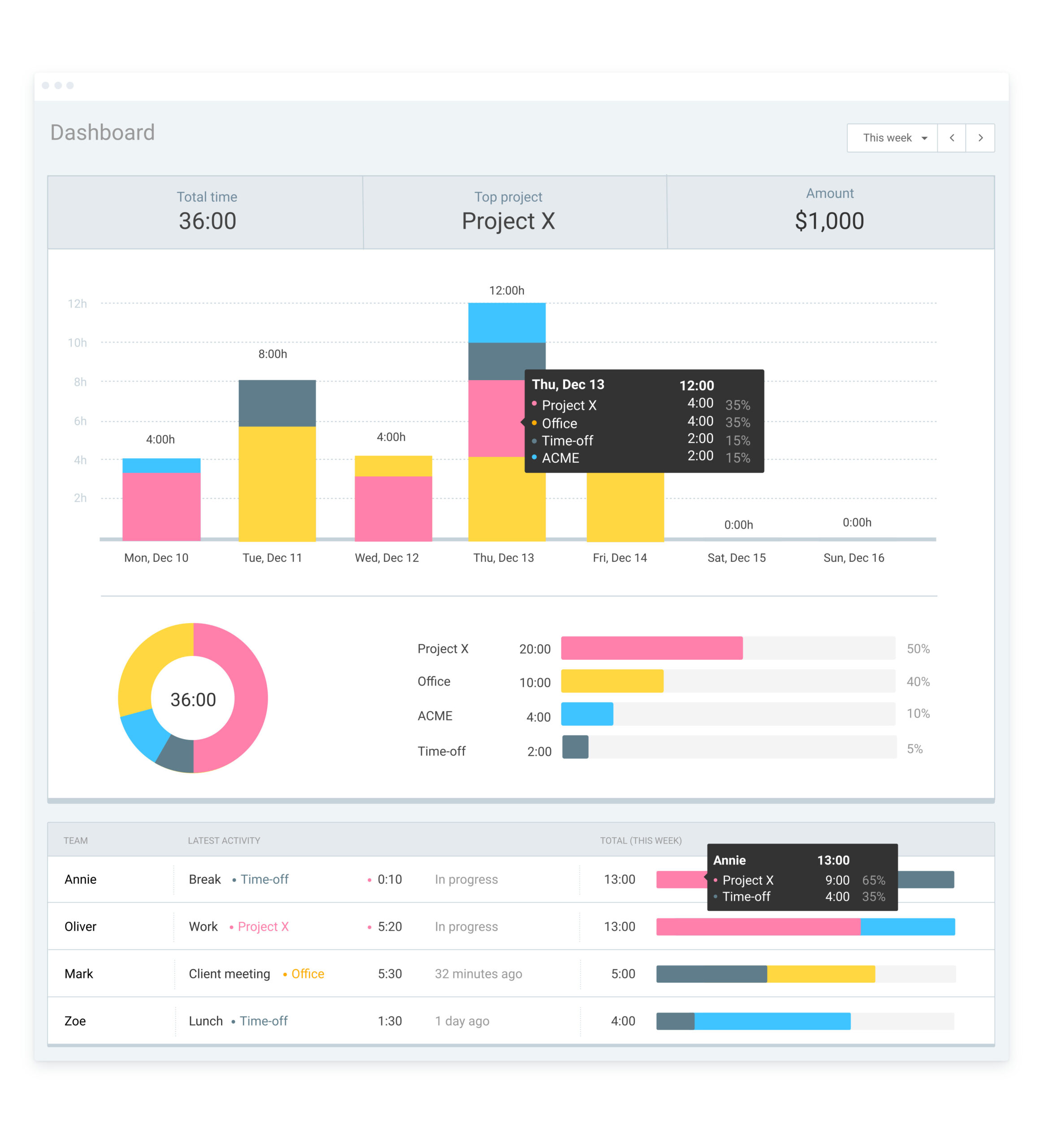
Powerful time trackers have enabled me to achieve my productivity goals within the 8-hour time limit. And frankly, I forget to think about time now.
Time isn’t the enemy once you learn how to work together. Mastering time management with Clockify has redefined my work-life balance and given my work a genuine purpose.


